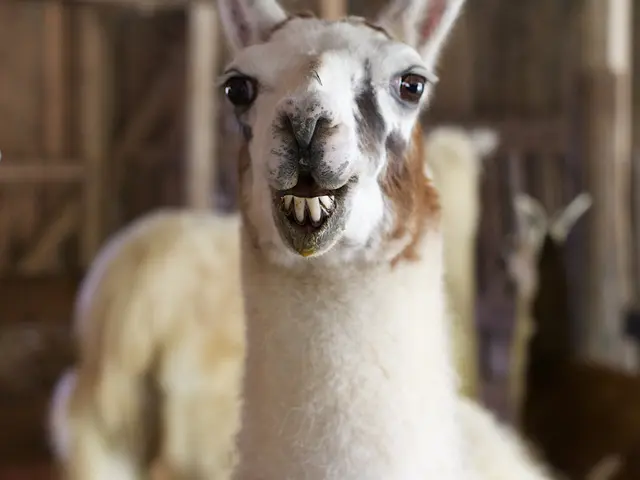Understanding the Unsettling Ambiance of 'Nosferatu': A Deep Dive into Its Eerie Atmosphere
New Article
Robert Eggers' chilling remake of Nosferatu, released in 2024, delves deep into the macabre, with a twisted affinity between the sultry Ellen Hutter (Lily-Rose Depp) and the hideous Count Orlok (Bill Skarsgård) taking center stage. Rolling in sexual tension and malevolence, their captivating, yet unsettling relationship forms the spine of this gripping horror tale.
Nosferatu, a spin-off of Bram Stoker's Dracula, follows Count Orlok, who, though less debonair than the traditional vampire, possesses a sinister allure. Eggers cleverly revisits ancient vampire lore while retaining the essence of the 1922 original. The story unfolds in a whirlwind of life and death, light and darkness, with human characters pulsating with energy and craving, contrasting sharply with the desolation that surrounds Orlok.
Prevalent themes of sex, death, and shame envelop the stark world of the film, with Ellen, an outsider who possesses a paranormal gift, seeking solace in the all-consuming Count Orlok. Ostracized due to her unusual abilities, Ellen yearns for companionship, which her oppressive society refuses to provide. Fatefully, her lonely plea finds a chilling answer in Count Orlok, who awakens from his centuries-long slumber to claim her.
Ellen's recurring dreams create a cocktail of conflicting emotions, blending longing, fear, guilt, and self-loathing. Despite her efforts to lead a normal life alongside her husband, Thomas Hutter (Nicholas Hoult), these perverse desires reemerge once Thomas is tasked with selling an estate to Orlok, who appears as an eccentric nobleman.
Orlok is no ordinary bloodsucker. He is an embodiment of horrors lurking in the darkest corners of humanity, representing Ellen's repressed sexual desires that society shames her for. In interviews, Lily-Rose Depp described a "fatal attraction" with Orlok, likening it to a macabre love triangle involving herself, Thomas, and the terrifying Count.
In a twist from the original Nosferatu, Thomas, charmed and tricked by Orlok's mind-control powers, unknowingly signs a sinister contract under occult lyrics. Yet, to complete the pact fully, Orlok still needs Ellen's consent.
The true intentions of Count Orlok are more apocalyptic than romantic. He feeds on innocent souls, propagating misery and rot in his path, with a hunger similar to a bloodthirsty insect or a disease that spreads throughout a population. Unlike the enigmatic Dracula, Orlok possesses no capacity for creating new vampires, instead invading his victim's lives only to destroy them.
Eggers' version portrays Orlok as a cold-blooded fiend ascending from the depths of Transylvanian wealth and power. Trapped within his ancient castle, his body sustains decay while his clothes retain the splendor of former nobility.
Count Orlok is driven by his voracious appetite for human blood, yet he cannot provide Ellen with love or happiness as she desires. To him, she is but another offering to satiate his insatiable hunger. Despite her dark yearnings, Ellen remains destined for something far greater.
As Orlok wreaks havoc across the town, spreading death and despair in his wake, Ellen must devise a dangerous plan to save herself and those she loves. While the ending might prove heartrending, it offers a glimmer of hope, with good triumphing over evil and justice for the cursed souls.
In the realm of entertainment, the gripping horror business of 2024 saw a significant addition with Robert Eggers' remake of Nosferatu, a fusion of health and artistry that delved deep into macabre storytelling. This business venture, intermingled with themes of sex, death, and shame, also ventured into the world of movies-and-tv, presenting a riveting portrayal of the complex relationship between Ellen Hutter and Count Orlok, offering a fresh twist on the age-old vampire tale.
Caught in the whirlwind of life and death, light and darkness, the human characters in Nosferatu, including Ellen, Thomas Hutter, and Count Orlok, echo the vicissitudes of human health, craving companionship and love amidst societal repressions, symbolizing the delicate balance between well-being and the darker aspects of life that often go unspoken.







